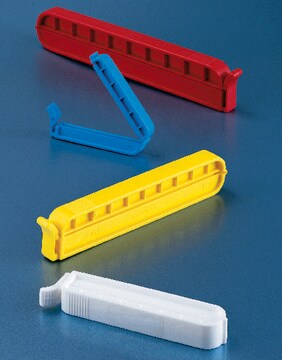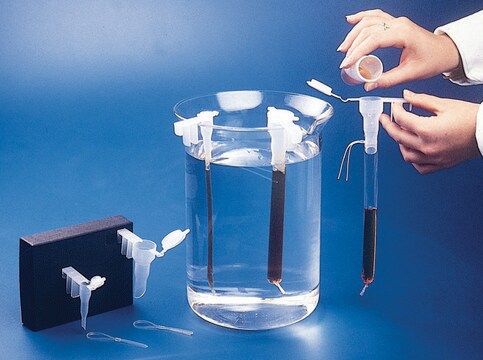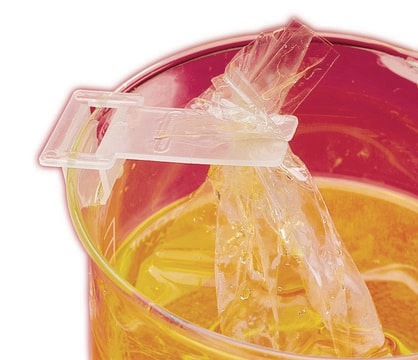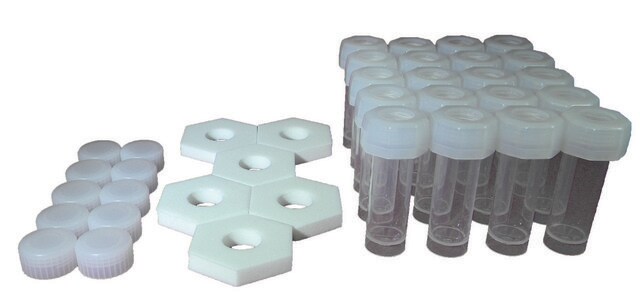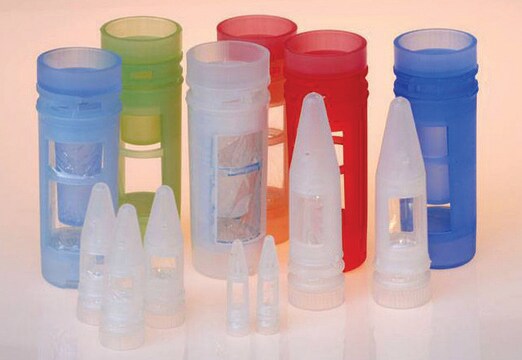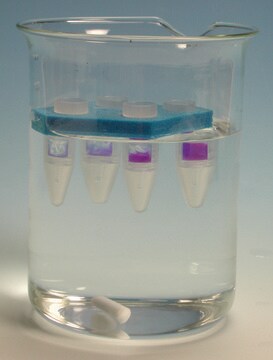D0405
Dialysis tubing, high retention seamless cellulose tubing
avg. flat width 23 mm (0.9 in.), MWCO 14000, 99.99% retention
Synonym(s):
Dialysis tubing
Sign Into View Organizational & Contract Pricing
All Photos(1)
About This Item
UNSPSC Code:
41123100
NACRES:
NB.22
Recommended Products
avg. diam.
15 mm , when full
avg. flat width
23 mm (0.9 in.)
capacity
~50 mL/ft
pore size
14000 MWCO, 99.99% retention
Looking for similar products? Visit Product Comparison Guide
General description
Retains >99% of cytochrome c (M.W. 12,400) in solution over a 10-hour period.
Packaging
Supplied in rolls, dry
Quality
May contain glycerin and sulfur compounds in more than trace amounts; washing instructions are included.
Preparation Note
Removal of glycerol included as a humectant can be accomplished by washing the tubing in running water for 3-4 hours. Removal of sulfur compounds can be accomplished by treating the tubing with a 0.3% (w/v) solution of sodium sulfide at 80°C for 1 minute. Wash with hot water (60°C) for 2 minutes, followed by acidification with a 0.2% (v/v) solution of sulfuric acid, then rinse with hot water to remove the acid. This tubing will retain most proteins of molecular weight 12,000 or greater.
Choose from one of the most recent versions:
Certificates of Analysis (COA)
Lot/Batch Number
Sorry, we don't have COAs for this product available online at this time.
If you need assistance, please contact Customer Support.
Already Own This Product?
Find documentation for the products that you have recently purchased in the Document Library.
Customers Also Viewed
Inge Pietersen et al.
Pathogens (Basel, Switzerland), 9(12) (2020-12-03)
Vaccine efficacy requires the production of neutralising antibodies which offer protection against the native virus. The current gold standard for determining the presence of neutralising antibodies is the pseudovirion-based neutralisation assay (PBNA). PBNAs utilise pseudovirions (PsVs), structures which mimic native
Ahmet Dogrul et al.
Journal of microencapsulation, 31(5), 448-460 (2014-04-05)
The purpose of this study was to develop a water/oil microemulsion containing lidocaine hydrochloride (4%) and to compare its local anaesthetic efficacy with commercial products. A pseudoternary diagram (Km:1/1 or 1/2) was constructed using lecithin/ethanol/oil/water. The droplet size, viscosity and
Mojgan Allahyari et al.
Journal of immunological methods, 416, 157-166 (2014-12-02)
Recombinant antigens are increasingly applied to replace native antigens in serological tests. Surface antigen 1 (SAG1) is a highly immunogenic antigen and probably represents the most explored and used antigen of Toxoplasma gondii for development of serological test kits. The
Our team of scientists has experience in all areas of research including Life Science, Material Science, Chemical Synthesis, Chromatography, Analytical and many others.
Contact Technical Service

